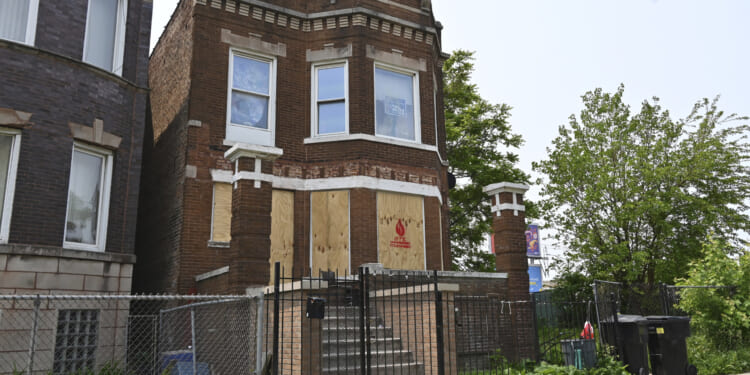Chicago homeowners on the South and West Sides are bracing for huge property tax hikes, driven by surging assessments and government spending tied to pensions.
Property tax bills are about to spike for tens of thousands of Chicago homeowners.
A new investigation from Illinois Answers and the Chicago Tribune found assessments doubled or even tripled for more than 37,000 homes on the South and West Sides, setting the stage for punishing tax bills this fall. In Englewood, Roseland and North Lawndale, median assessments jumped between 119% and 160%, far outpacing the 22% citywide median.
For many longtime residents, this means higher tax bills they can’t afford and fewer options to relocate. One homeowner put it bluntly: “Even if I did sell, where would I go?”
These assessment spikes don’t exist in a vacuum. Property taxes are the primary funding source for local governments. Chicago continues to seek out more funding rather than lowering spending.
Illinois homeowners already pay the highest effective property tax rate in the nation, at about 1.83% a year of their property’s value. In Cook County, the effective rate is 1.98%. That burden has contributed to tens of thousands of residents leaving Illinois, shrinking the tax base and forcing those who remain to shoulder an even heavier load.
It’s also led to more than 1,000 homeowners in Cook County – including 125 senior citizens – since 2019 losing their homes and all of their equity over a property tax debt smaller than the price of a 10-year-old Chevy Impala. The U.S. Supreme Court has found the practice of taking more than the tax owed to be unconstitutional, but Illinois state lawmakers have yet to change the law to stop equity theft.
In May 2022, 37,000 properties in Cook County were planned for delinquent tax sale. Of those, 54% had tax debts of less than $1,000. High property tax rates are punishing low-income residents and making home ownership more difficult.
It’s time for Chicago policy leaders to look into reforms that can provide relief, especially to low-income communities that need it most.
Reforming costly tax increment financing districts would be one place to look. These districts set aside property tax revenue into a special fund to pay for commercial development projects such as land purchases, demolition or site prep.
These public dollars benefit private developers rather than schools, parks, or other public services. They also put local government in the role of picking winners and losers in the marketplace by subsidizing one business over another.
In 2023, $1.36 million in property tax revenue – 42% of Chicago’s $3.23 million total tax levy – was diverted into tax increment financing funds. In suburban Cook County, $428.3 million, or 25% of $1.69 billion in total property taxes, was allocated to these zones.
Lawmakers should cap how long tax increment financing districts can last and limit the number of times they can be extended. Returning those dollars to general use would bring much-needed transparency and real property tax relief for Illinois residents.
They should also look to reform the property tax appeals process. The process favors wealthier taxpayers and businesses that have the time and resources to appeal their assessments, leading to increased rates for homeowners who don’t. In higher-income communities, nearly 46% of properties filed appeals. In lower-income communities, just 11% appealed.
Between 2021 and 2023, businesses in Cook County, which already face some of the highest commercial property taxes in the nation, successfully appealed their property assessments and shifted $1.9 billion to homeowners.
Another complication is sitting lawmakers can act as property tax appeal attorneys and profit from a system of ever-growing tax hikes. Imprisoned former Illinois House Speaker Mike Madigan did that, as well as confined former Chicago Ald. Ed Burke. That source of corruption shouldn’t be allowed.
Finally, the best way to reduce the burden on low-income residents is to reduce the tax burden for everyone. That can only be achieved through constitutional pension reform.
Chicago sees 80% of the property taxes go toward its growing pension debt. Rather than seeking to control spending, Gov. J.B. Pritzker recently signed a “pension sweetener” for Chicago police and firefighters that will increase liabilities by $11.1 billion.
Constitutional reform would allow for moderate pension changes. It would increase the fiscal health of these systems and reduce the property tax burden on Chicago homeowners.
Lawmakers can ease the pressure on neighborhoods such as Englewood, Roseland and North Lawndale by reforming pensions and eliminating the practices that drive up the costs. Structural reforms will give families stability and let communities thrive.










